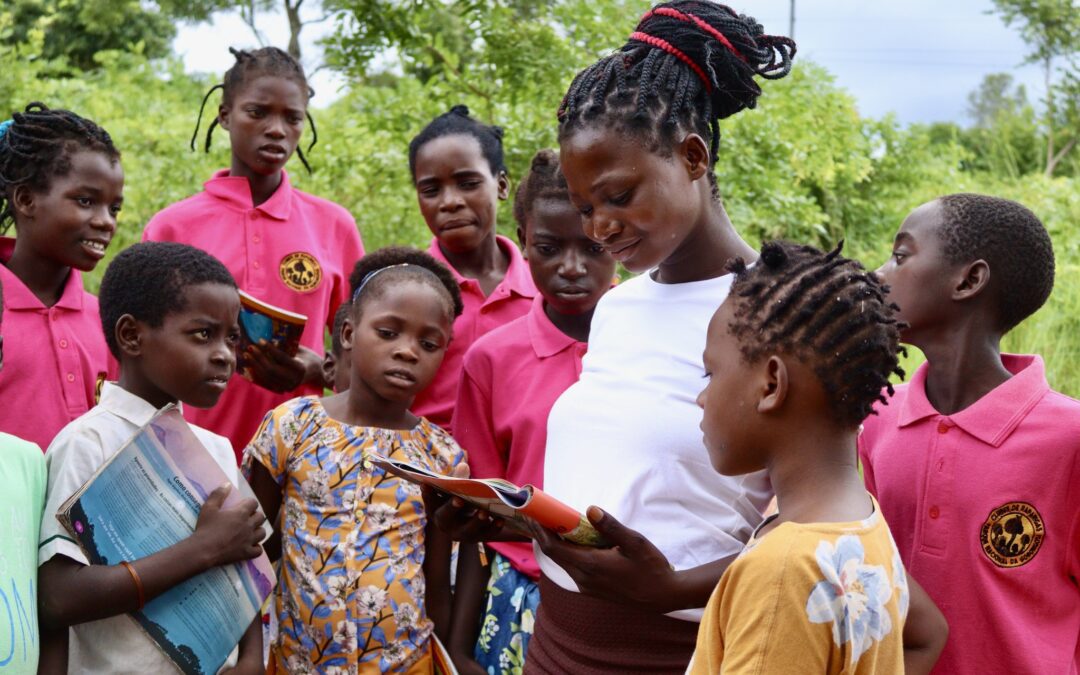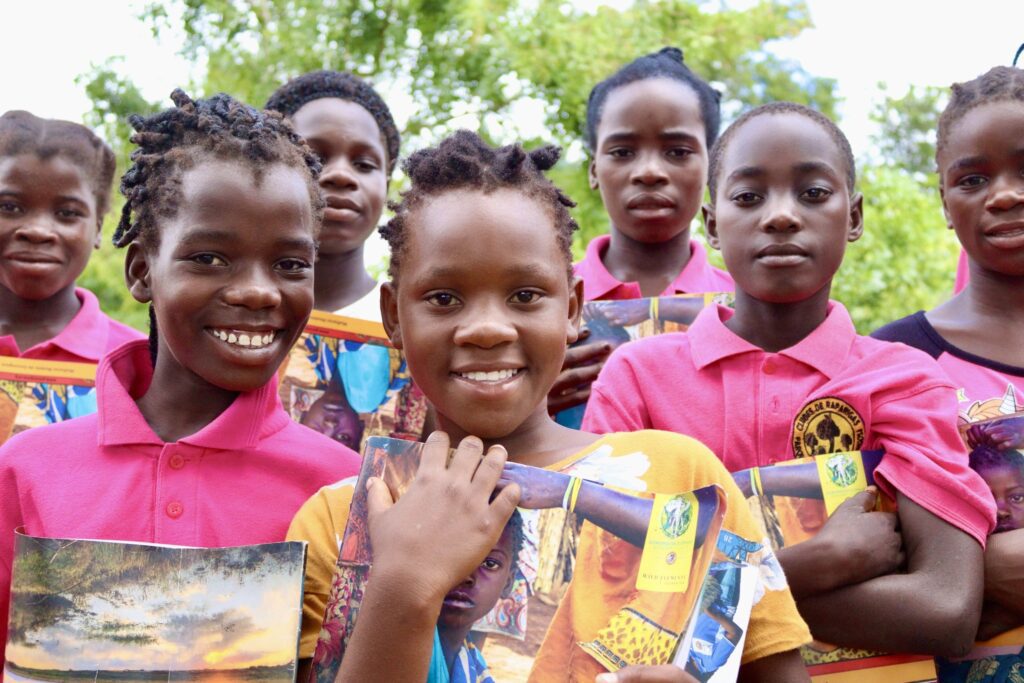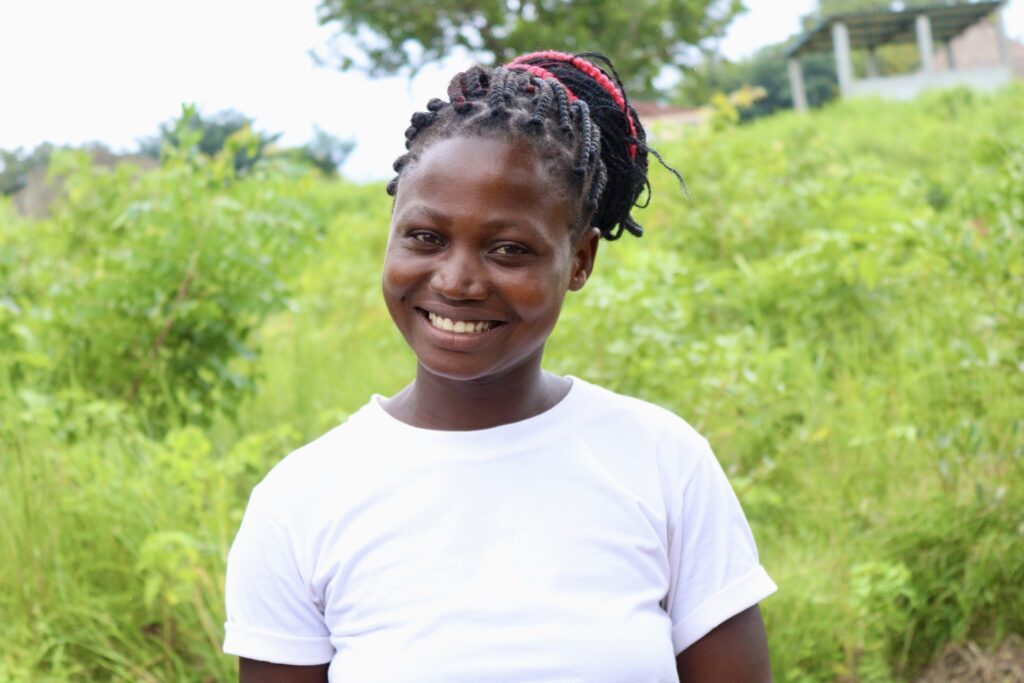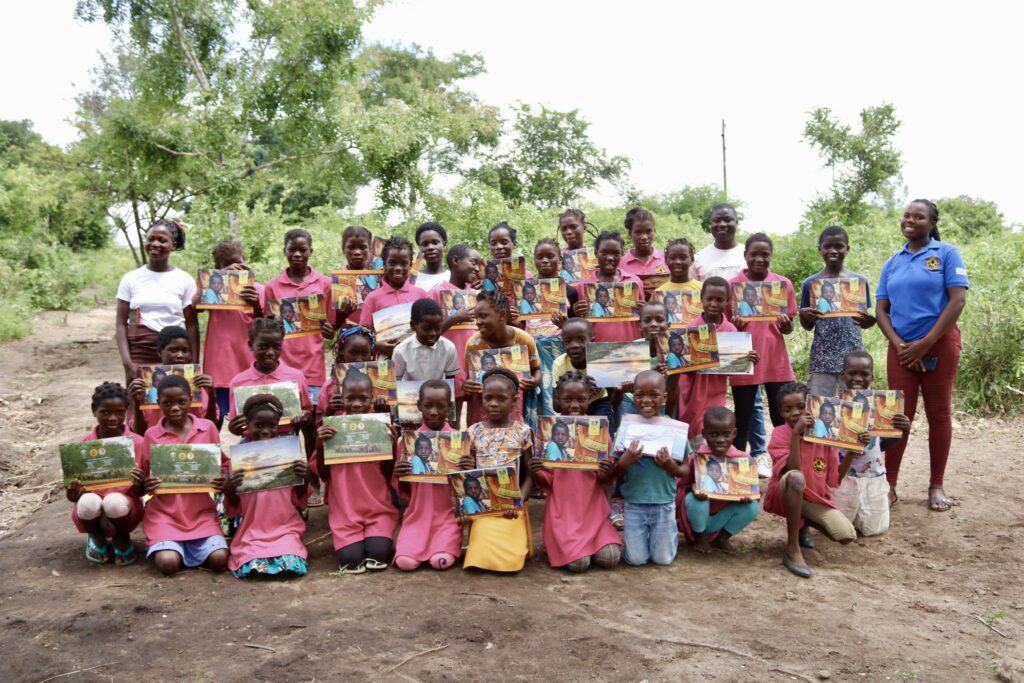More local women are visiting Girls Clubs to share their experiences and knowledge, identify resources for personal development and growth, and encourage the girls to get out of their comfort zone
Diolinda Mundoza, ornithologist, and Ivanilda Chiemo, master program coordinator, were some of the first women to start visiting club activities and went to the Matenga club in Nhamatanda District where they shared their experiences and spoke about their professional careers.
Another young woman named Cândida, a native of the Nhamatanda district and a resident of Mucombezi, recently spoke to the girls about the disadvantages of early marriage.
At 15 years old, Cândida decided to stop studying and get married. At the time, it seemed like a good idea. Unlike many girls forced to marry by their parents, Cândida decided to take this initiative on her own, even though her parents were against her decision.
Life with her new family did not work out, and as time went by, Cândida became a victim of domestic violence. As she began to think about her future, she eventually decided to leave the marriage and return to school. She continued with her studies and became a member of a local Gorongosa Girls’ Club, where she learned to value the advice of her parents, her classmates, and share her experiences at home.
Eventually, Cândida won a scholarship to go to secondary school, and when she finished the 12th grade, she applied for and was selected to support one of the clubs. Today Cândida is a mentor for the Girls’ Club in the community where she lives, and speaks with local girls about the disadvantages of early marriage and advises them not to give up their studies.
More than 1,400 copies of a brochure with stories of women role models from Gorongosa National Park were distributed to local girls earlier this year. The brochures feature the opportunities and resources available to support their education and encourages the girls to start planning for the future as early as possible.
A campaign to prevent and combat forced unions was also launched in March and will be implemented through the Girls’ Clubs program. Activities will be carried out in communities to create mechanisms, and district and community committees to protect and safeguard children, particularly girls and young women.



